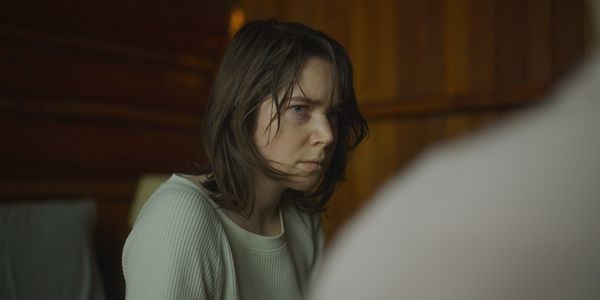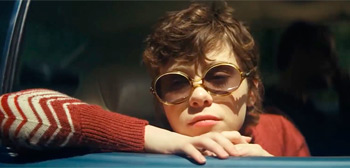Never Woke Enough: Critics Savage ‘Soul,’ ‘Wonder Woman 1984’
Woke culture comes with unwritten, undeniable rules.
- Conservatives aren’t offered protection against cruel attacks that would get some canceled
- Liberals enjoy limited protection should they run afoul of the woke bylaws
- You can never, ever be woke enough
The latter came true last year when the wokest comedy of the modern era hit theaters. “Booksmart,” while a fresh, engaging teen comedy, checked off as many woke boxes as a movie could. The main characters were proudly feminist, dressing in shapeless steel blue ensembles straight from the Chairman Mao line.

It wasn’t enough.
Critics complained the film focused on two white, privileged females, for starters. We’re seeing the same sentiment attached to two major December releases.
Pixar’s “Soul” stars Jamie Foxx as a music teacher who longs to be a traveling jazz artist. Many are hailing the film as the first Pixar feature focused on a black main character.
“Wonder Woman 1984” delivers another strong, superheroic female in a film teeming with woke moments. Yet neither high-profile film is “woke” enough, apparently.
The far-Left Daily Beast greeted “Soul’s” arrival on Disney+ by insisting we shouldn’t celebrate the cultural milestone it sets.
Why?
Pixar’s latest film is a return to form for a company that has built a reputation for heartwarming stories with a creative twist, but these stories continue Disney’s tradition of giving Black leading bodies little screen time as they often morph into either an animal or something else inhuman. If you were looking to watch a very lively Gardner grooving to jazz throughout the film, as was suggested in various trailers and commercials, guess again. Expect to see a melanin-less soul with the voice of Foxx floating through much of the film instead; and if that weren’t enough, Gardner’s body is later overtaken by another soul, voiced by Tina Fey, while Gardner assumes the form of a cat).
…When it’s already hard enough to find Black leads in live-action theatrical films, to witness such systemic racism carry on in animation at this point is devastating. The situation has gotten so bad that there’s currently a Change.org petition with over 2,500 signatures calling on animation studios to “STOP Animation Trope that Dehumanizes Black Characters.”
The author also slams the recent “Spies in Disguise for making Will Smith’s character, a black spy, turn into a pigeon during the film.
While representation matters, how such imagery of diverse characters is depicted in film matters even more. Black and brown people not only deserve audio representation in animated cinema, but full screen time in their complete bodies as well.
Insider.com pounced on “Soul” as well.
The web site finds fault with the main character, Foxx’s Joe, teaming with a white woman’s soul (Tina Fey).
Major ‘Soul’ Spoilers Ahead
In its final moments, “Soul” is set to sacrifice its Black lead so a white woman can go and live out her life on Earth. Joe decides he’s fine with dying because he was able to live out a dream. As the movie’s about to wrap up however, Joe’s given a second chance to live life because of his good deed. Good for ol’ Joe, right?
First, Joe is killed the moment he gets his big break within the first 10 minutes of the film. What kind of message does that send to young children watching this film who see themselves in Joe?
Second, “Soul” steps into a dangerous trope that has become frequent in animation with leads of color. After Joe “dies,” we see him turn into a green blob, which is a pattern we’ve seen in animation of turning Black characters into creatures.
The critic also complains that Joe’s earthly body is inhabited, for a spell, by a white woman.
And not just any woman, but Fey, who, earlier this year, requested that episodes of her show “30 Rock” be pulled from streaming because of blackface? The same show that still has episodes on streaming featuring brownface. Hearing her “trapped” in Foxx’s animated body just felt insensitive, especially after this year.
The column wraps by suggesting the film’s sky high RottenTomatoes.com score is due to the fact that most movie critics are white.
For the record, a quick peek at the film’s RottenTomatoes.com page shows plenty of non-white critics praising “Soul.”
It’s ironic that the same news site previously published an exhaustive article sharing how the team behind “Soul” did everything possible to “avoid harmful black stereotypes.” That included inviting a crush of black artists into the project for their full input.
The site BlackGirlNerds also found the introduction of a white character, or at least one voiced by a white actress, problematic.
But, for a movie highlighted as the first Black lead for a Pixar film, we don’t get to see enough of the body and soul as one. It’s not as bad as the Princess and the Frog situation that we all talk about, but it is not great. From the outside, Soul looks like it is all about Joe Gardner, but feels like it is about 22. As lovable, sarcastic, and cheeky as that character is, it is not the Black man we planned on rooting for in the entire film. Is it too much to ask for an animated movie from a major studio claiming credit for the first Black male lead to have him stay on screen and be himself for the entire time?
“Wonder Woman 1984” is facing a similar onslaught from the press.
Forbes.com serves up a stinging rebuke to the film that has nothing to do with its shoddy storytelling or woke theatrics.
“Wonder Woman 1984” Spoilers Ahead
The film reunites Gal Gadot’s superhero with Steve (Chris Pine), her love interest from the 2017 film who died in the movie’s third act. Wonder Woman wishes Steve back early in the film, and he returns but in the body of another, very much alive man.
the resurrection of Steve is the only desire she has (and to be fair, the rest of her life is incredibly privileged and meaningful — what else could she possibly want?). But when Steve is ripped from Heaven’s womb, his soul is placed into the body of … some random guy. A living stranger, whose consciousness simply disappears the moment his body is possessed by the former WWI soldier.
Naturally, Diana is surprised to see him return — but she doesn’t seem concerned with the fate of the stranger — not even a little bit. She simply doesn’t care. In fact, she has sex with Steve, using this man’s body like a silicone sex doll.
The author has other “problems” with the film, but he circles back to imply ALL superhero films are “problematic.”
Superheroes tend to maintain the status quo, however unjust, and villains who desire change tend to be depicted as unhinged radicals. Even if villains have a sympathetic grievance, or a strong point (Black Panther’s Killmonger, Spider-Man: Homecoming’s Vulture), they are always written to be violent, unhinged psychopaths — because they have to be.
The far-Left vulture also cries foul over Steve’s re-appearance in the sequel, although in a more bemused fashion.
Not even Chris Pine’s cute and utterly unnecessary fashion show in WW84 — in which he demonstrates how to correctly wear neon tank tops, parachute pants, and fanny packs — can distract from the fact that in order for Diana and Steve to continue their romance in a misguided sequel, an innocent engineer with questionable taste in clothes is sacrificed with absolutely zero pomp or circumstance. One minute he’s living his nameless life (his character is credited only as “Handsome Guy”) and the next he’s just … no longer living at all? Because Steve’s soul zoomed back to Earth courtesy of a wish upon a mystical rock and Wonder Woman, mysterious female savior to literally everyone else, doesn’t even feel a little bad about it? Where did Handsome Man’s soul go when Steve’s took over? Were his parents or friends worried about him when he stopped calling?
The far-Left AV Club’s official “Wonder Woman 1984” review worries that Steve is too important a figure in the film. Yes, despite Gadot taking up the vast majority of the film’s running time and its heroism factor, it’s not enough.
But that speaks to a larger issue with Wonder Woman 1984, namely that, in many ways, this isn’t really Diana’s story. It’s the Diana and Steve show, first of all—not only because he tags along for most of the action, but also because he’s the driving factor behind much of Diana’s decision-making in the film. Not an Amazon’s duty, not protecting humanity, but Steve. F***ing Steve, in his fanny pack, scared of escalators.
Need more examples where woke movies were deemed not woke enough?
The feminist comedy “Snatched” was attacked as racist for having its empowered mother-daughter combo on the run from people of color.
“Black Panther” didn’t fully address LGBTQ issues despite an all-black cast hailed across the culture.
“Moana” included a demigod portrayed as larger than life, if not obese. That proved upsetting to some in Polynesian culture, apparently.
The post Never Woke Enough: Critics Savage ‘Soul,’ ‘Wonder Woman 1984’ appeared first on Hollywood in Toto.





